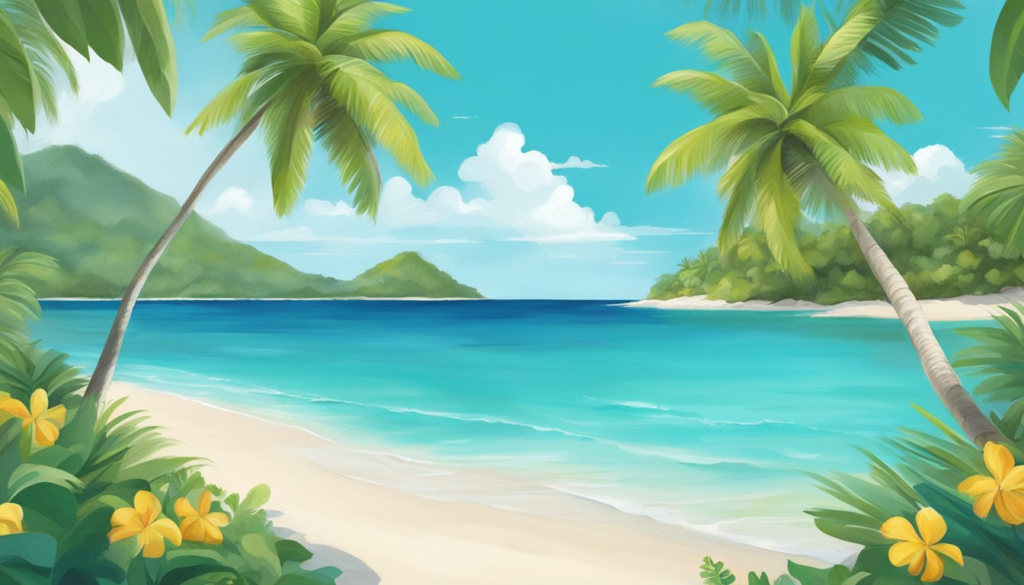Whether you’re planning a visit to the British Virgin Islands or just want to learn more about the history and culture of the British Virgin Islands, you’ll find a lot of great information in this travel guide. The British Virgin Islands travel guide includes information on the history of the islands, geography, economy, and tourism industry. It also provides information on Road Town Tortola, the capital of the BVI.
British Virgin Islands Geography
Located in the Caribbean Sea, the Virgin Islands are home to a diverse variety of people, including native Amerindians, Europeans, and Americans. They are known for their snorkeling, tropical rainforests, and beaches.
The islands are located east of Puerto Rico, southeast of Florida, and north of Jamaica and Barbados. The population is estimated to be around 110,000, according to the United States Census. In 2010, 78 percent of the Virgin Island population were Black, and a further 10 percent were White. The majority of the inhabitants are natives of the Virgin Islands, but the islands also have a large population of people who were born in other Caribbean countries.
The leading health concerns among the inhabitants of the United States Virgin Islands are diabetes, cancer, HIV infection, and cardiovascular disease. Over 80 percent of the population report at least one major risk factor for heart disease. However, many of these factors are modifiable and preventable.
One of the main attractions of the Virgin Islands National Park is the coral reefs and beaches. The park covers more than fourteen thousand acres of land. The park also protects the tropical marine ecosystems and cultural heritage of the Virgin Islands from the pre-Columbian through the Danish colonial periods. In addition, the park is home to wild goats, skinks, and iguanas. The park also contains several hiking trails.
In addition to the park, the Virgin Islands Coral Reef National Monument was established in 2001. This monument features hiking trails and coral reefs.
Road Town Tortola the Capital of BVI
Located in the Virgin Islands, Road Town is the capital of the BVI. While it may not be the most glamorous, it is a place worth seeing. The capital is a great place to start a tour of the islands because it offers easy access to some of the best beaches in the world. There are also some good shopping options to keep you busy while you are in town.
The British Virgin Islands are full of natural wonders. There are gorgeous beaches, unique mountains to climb, and polite and friendly people. You can also enjoy some of the best bareboating in the world.
There are many things to do in the area, including enjoying a nice dinner or a couples massage at Amara Spa. There are also many art galleries and quirky cafes to explore. You can also try your luck at a pirate ship bar.
One of the best places to find a good happy hour is Myett’s Garden & Grill. It has a great menu, a great breakfast, and is also the place to go for a cheap happy hour.
Tortola is one of the largest islands in the BVI. It is also the most populated. You can get around the island with a ferry. You can also rent a private boat. A private boat will take you to the best beaches, and can even supply drinks.
British Virgin Islands History
Located between the Atlantic Ocean and the Caribbean Sea, the Virgin Islands were discovered by Christopher Columbus in 1493. They are a part of the Lesser Antilles. Today, the Virgin Islands fall under the jurisdiction of the United Kingdom. They have been a British colony since 1672.
The language spoken in the Virgin Islands is English. In the early 1800s, English was the language of choice in Charlotte Amalie, a busy trading port. The language was also used for religious texts. In addition, Spanish is spoken by immigrants from Puerto Rico and Spanish-speaking countries in the Caribbean. French Creole is also spoken by Haitians and French Guiana immigrants. During the early 1880s, Dutch Creole was used in the Virgin Islands, but it was only heard by older people. This language is no longer used in the Virgin Islands.
English is also the official language of the US Virgin Islands. In 1927, the U.S. acquired the Danish part of the Virgin Islands for $25 million. After this purchase, the U.S. began to grant citizenship to the United States Virgin Islanders. In 1917, the U.S. acquired the Danish West Indies, and the US Virgin Islands became a territory of the United States.
Economy of British Virgin Islands
Historically, the United States tried to expand its influence into the Caribbean with the earliest attempts occurring in the mid-1800s. In fact, the Virgin Islands has been a part of the United States since 1917, when the Danish West Indies became part of the U.S. The United States government formally changed the island name to the Virgin Islands of the United States, and full U.S. citizenship was extended to residents born in 1932. While the name change was not the most sweeping of changes, it did provide the foundation for a greater measure of self-government.
In the modern day, the most notable change came in the form of a new governor, who was not appointed until 1970. This has been followed by a widening of the relationships between colonisers and the islanders. The head-to-heart challenge has continued, but the most recent bouts of tension have taken on a life of their own. There is also a growing sense of discontent, thanks to things like the Covid-19 drug ring and Black Lives Matter protests.
The best way to measure the performance of the Virgin Islands is to check out the Department of Labor’s data. They publish a number of statistics including the number of jobs, wage rates, and industrial growth. The Department of Labor is also responsible for collecting data on the local economy.
Among the data, the most interesting is the gross domestic product (gdp) per capita, which has been calculated by combining the midyear population with product taxes and subsidies. In 2016, the gdp per capita was $35,365.
Frequently Asked Questions
Where are the British Virgin Islands located?
The British Virgin Islands are located in the northeastern Caribbean, just east of Puerto Rico. They form part of the larger Virgin Islands archipelago, which also includes the U.S. Virgin Islands. The main islands of the BVI are Tortola, Virgin Gorda, Anegada, and Jost Van Dyke.
What are the main attractions in the British Virgin Islands?
The British Virgin Islands are famous for their sailing and watersports. Popular attractions include:
- The Baths (Virgin Gorda): A unique geological formation of massive granite boulders, creating beautiful pools and grottoes.
- Sailing and Boating: The BVI is a world-renowned sailing destination, with many yachts and catamarans available for charter.
- Anegada: Known for its coral reefs and pink flamingos, Anegada is a diver’s paradise.
- Soggy Dollar Bar (Jost Van Dyke): A must-visit beach bar famous for the Painkiller cocktail.
- Cane Garden Bay (Tortola): A popular beach known for its laid-back vibe, perfect for swimming and water sports.
What is the best time to visit the British Virgin Islands?
The best time to visit the British Virgin Islands is during the dry season, which runs from November to April. This period offers warm temperatures, minimal rainfall, and excellent sailing conditions. While the wet season (May to October) brings fewer crowds and lower prices, it’s important to keep in mind that it coincides with the Atlantic hurricane season.
What activities can I do in the British Virgin Islands?
The BVI is perfect for outdoor enthusiasts and water lovers. Activities include:
- Snorkeling and Diving: Explore vibrant coral reefs, marine life, and shipwrecks like the famous RMS Rhone.
- Sailing and Yacht Charters: The calm waters make it a top destination for sailing and island-hopping.
- Hiking: Trails on Tortola and Virgin Gorda offer stunning views of the islands and sea.
- Fishing: Deep-sea fishing is popular, with opportunities to catch marlin, tuna, and mahi-mahi.
- Beach Relaxation: Enjoy sunbathing and swimming on the BVI’s many tranquil beaches.
How do I get to the British Virgin Islands?
The British Virgin Islands are accessible via flights to Terrance B. Lettsome International Airport (EIS) on Tortola, which typically requires a connecting flight from nearby islands such as Puerto Rico or the U.S. Virgin Islands. Alternatively, travelers can fly into St. Thomas (U.S. Virgin Islands) and take a ferry to Tortola.
What is the currency used in the British Virgin Islands?
The official currency of the British Virgin Islands is the U.S. dollar (USD), making it convenient for travelers from the U.S. and other countries that accept dollars.
Are the British Virgin Islands family-friendly?
Yes, the British Virgin Islands are an excellent destination for families. The calm waters, sandy beaches, and opportunities for sailing, snorkeling, and exploring nature make it a great place for children and adults alike. Many resorts offer family-friendly activities and amenities.
Do I need a visa to visit the British Virgin Islands?
Visa requirements for the British Virgin Islands vary depending on your nationality. U.S. and Canadian citizens can enter the BVI without a visa for short stays (up to 30 days). It’s important to check entry requirements based on your home country before traveling.
What are some of the best beaches in the British Virgin Islands?
- White Bay (Jost Van Dyke): A picturesque beach with turquoise waters and soft sand, perfect for swimming and beach bars.
- Smuggler’s Cove (Tortola): A quiet and secluded beach, ideal for snorkeling and relaxation.
- Savannah Bay (Virgin Gorda): Known for its long stretches of sand and calm waters, perfect for sunbathing.
- Loblolly Bay (Anegada): A remote beach on Anegada, ideal for snorkeling and escaping the crowds.
Is the British Virgin Islands a good destination for couples?
Absolutely. The British Virgin Islands offer a romantic and serene setting for couples. Whether it’s sailing on a private yacht, enjoying a sunset beach stroll, or exploring the secluded islands together, the BVI provides an idyllic escape for couples seeking relaxation and adventure.
The British Virgin Islands are a tropical paradise perfect for all kinds of travelers, offering endless opportunities for exploration, relaxation, and fun in the sun. Whether you’re visiting for the beaches, the marine life, or the vibrant island culture, the BVI promises an unforgettable experience.

